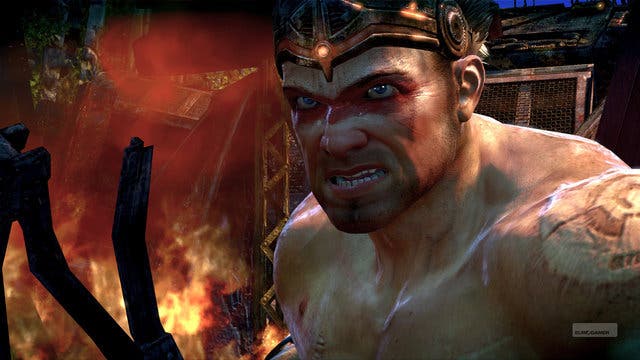Creative Tension
Are publishers impeding the creativity of the medium?
Ultimately, Kristensen puts the onus of producing new, original games squarely at the feet of developers. "If we can't make a proper argument for why a publisher should pick up the game," she says, "we've either not explained it well enough or the idea isn't good enough."
So what do the publishers themselves have to say about the matter? Despite Kristensen and Evans' belief that new, original experiences can find backing from the right publishers, the fact remains that the videogame industry is rife with sequels and copycats. Are publishers truly committed to innovation and new IP?
Sony Worldwide Studios Europe VP Michael Denny believes so. "Gamers and consumers generally crave new things," he says, "so if we want to stay relevant in an increasingly competitive environment, we must continue to find compelling new experiences to keep our platforms exciting."
Yet despite this, new experiences must be created with an eye on how they can be turned into a franchise, says Denny. Sequels are not just inevitable – they're expected.
"The massive creative and financial investment involved in bringing a new IP to market means that planning a franchisable game from the outset is important," he says, "I think that's natural and something expected from both a consumer and commercial perspective."
For Denny, sequels don't preclude further innovation. "The important thing is to try to define some key innovations to sequels in the early stages of pre-production," he says, "to ensure the experience remains compelling and exciting for the consumers."
Lee Kirton, marketing director at Namco Bandai Partners, goes even further. Proud of his own company's dedication to new experiences, he nevertheless rejects the notion that sequels are inherently bad.
"Technology and gameplay often improve and the experience changes and grows over the years," says Kirton, "I think that consumers have confidence in big franchises and sequels, so many publishers play it safe by focusing on established audiences and brands rather than new IP. Marketing pounds go a lot further when you already have a strong brand identity. The buzz that surrounds a game like Call of Duty within the playground or in the pub is incredible. It creates an instant sale."

What Kirton addresses here is something that the other industry representatives we spoke to only hinted at. Broadly speaking, consumers are wary of unique experiences.
He should know. Enslaved, Ninja Theory's Namco Bandai-published action game, failed to capture the public imagination. Despite being a new IP garnering positive reviews for pushing boundaries in story telling and motion capture, it has sold just 730,000 copies - well below the million they were aiming for.
It's not the only one, either. The list of well-received, yet poorly performing new IPs makes for dispiriting reading: Mirror's Edge, Mad World, Vanquish and Blur. And that's just in the last few years.
Ultimately, it's a publisher's job to second-guess consumers in order to provide them with what they want. So if sequels and military shooters continue to sell in huge numbers, for example, then publishers will continue to fund them and developers will continue to make them.
Yet, as we've seen, there is room for innovation. Publishers in the search of the next big thing will support the right project. Even if the intention is to iterate on it with sequels further down the road. They get it wrong sometimes of course, as Hello Games, Atomic Games and many other developers will attest. But original, unique, innovative mainstream games will still be made. It's just up to us to buy them.







